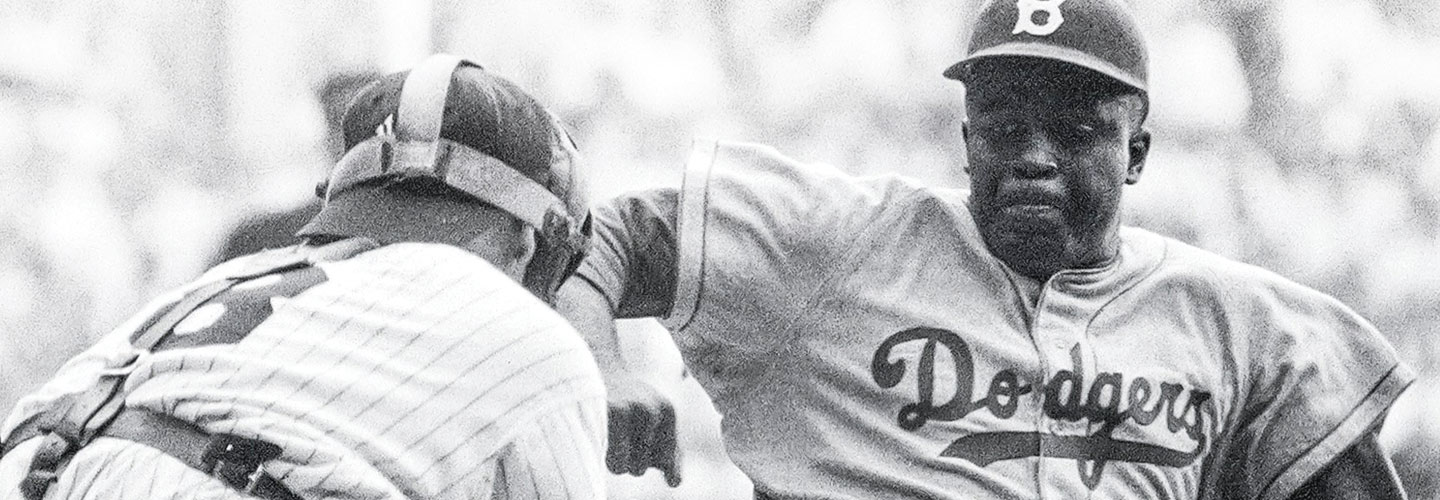It is among the most shameful scenes in American sports history: At a major league baseball park—Ebbets Field in Brooklyn, New York—a black player comes to bat. From the opposing dugout, white players, led by their manager, taunt the batter mercilessly.
“Hey, boy,” they call him, a then-common way to belittle black men, “come and shine my shoes.” “Boy, why ain’t you picking cotton?”
The batter for the Brooklyn Dodgers is Jackie Robinson. A week before, on April 15, 1947, he had become the first black man to play major league baseball in the 20th century. The abuse leaves him so upset, he later writes, that he is “an easy out.”
But late in the game, with the score tied, Robinson singles, races to third on an error, and scores on a hit. With that, the Dodgers beat the Philadelphia Phillies 1-0.
Then and in the months and years to come, Robinson made opponents eat their words. He sparked the integration of all professional sports in the U.S. and served as an inspiration for the civil rights movement. This April 15, as they do each year, all players in the majors will wear his number—42—to mark Robinson’s debut as a Dodger 70 years ago.
Yet Robinson’s journey wasn’t easy. “I know that I am a black man in a white world,” he later wrote. As good a player as he was, “I never had it made."
It is among the most shameful scenes in American sports history. At a major league baseball park—Ebbets Field in Brooklyn, New York—a black player comes to bat. From the opposing dugout, white players yell insults at him.
“Hey, boy,” they say, “come and shine my shoes.” “Boy, why ain’t you picking cotton?” (At the time, “boy” was a common way to belittle black men.)
The batter for the Brooklyn Dodgers is Jackie Robinson. A week before, on April 15, 1947, he had become the first black man to play major league baseball in the 20th century.
The abuse at Ebbets Field leaves Robinson very upset. He later writes that the taunts make him “an easy out.”
But late in the game, Robinson singles with the score tied. He races to third on an error and scores on a hit. With that, the Dodgers beat the Philadelphia Phillies 1-0.
Then and in the months and years to come, Robinson made opponents eat their words. He sparked the integration of all professional sports in the U.S. He also served as an inspiration for the civil rights movement.
On April 15, all players in the majors will wear Robinson’s number: 42. They will do so to mark his debut as a Dodger 70 years ago.
Yet Robinson’s journey wasn’t easy. “I know that I am a black man in a white world,” he later wrote. As good a player as he was, “I never had it made.”

